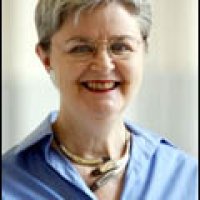Final Acts: A Guide to Preserving the Records of Truth Commissions
Speaker: Trudy Huskamp Peterson, archival consultant
Trudy Peterson, whose long career with the National Archives included service as Acting Archivist of the US, presented the report she prepared while a Public Policy Scholar at the Wilson Center 2003/2004. Final Acts is a guide to the questions of law, politics, physical preservation, and access that have arisen in connection with managing the records collected by the twenty truth commissions that have thus far completed their work. After examining and reporting on the abuses of deposed regimes—mainly in Central America, South America, and Africa—the truth commissions have left behind a wide variety of records—transcripts, video and audio recordings, email and computer files, and even artifacts. Peterson argued that this evidence must be saved and preserved in order to complete the commission's work; this is thus its final act. As repressive regimes attempt to impose a selective amnesia on society, saving the records makes sure that amnesia does not prevail.
Peterson praised the Wilson Center Press for having the vision to post the entire text on the Center website, so that persons in places where the cost of a hard copy would be prohibitive can have access to the book. She reported that she has already heard from individuals in East Timor involved with the work of the Truth Commission there who eagerly downloaded the text. As she surveyed the range of situations within which Truth Commissions have been established, she attempted to discern patterns that might help identify factors that contribute to transparency. She concluded that the most important factor predicting success was how secure the population feels that the old regime will not return, a condition she believes gives people the freedom openly to examine the past. She noted that preservation of the records is most likely when the commission is set up by Parliament, rather than by a new president or prime minister. Peterson sees the spread of Truth Commissions as connected to the end of the Cold War; since so many of the states that have established Truth Commissions were battlegrounds for surrogate Soviet/American conflict, it is difficult to imagine that the commissions could have been created while the Cold War continued.
Kathryn Weathersby, Senior Associate, History and Public Policy Program
Speaker

Consulting Archivist
Hosted By

History and Public Policy Program
A leader in making key foreign policy records accessible and fostering informed scholarship, analysis, and discussion on international affairs, past and present. Read more


Cold War International History Project
The Cold War International History Project supports the full and prompt release of historical materials by governments on all sides of the Cold War. Read more


Africa Program
The Africa Program works to address the most critical issues facing Africa and US-Africa relations, build mutually beneficial US-Africa relations, and enhance knowledge and understanding about Africa in the United States. The Program achieves its mission through in-depth research and analyses, public discussion, working groups, and briefings that bring together policymakers, practitioners, and subject matter experts to analyze and offer practical options for tackling key challenges in Africa and in US-Africa relations. Read more
